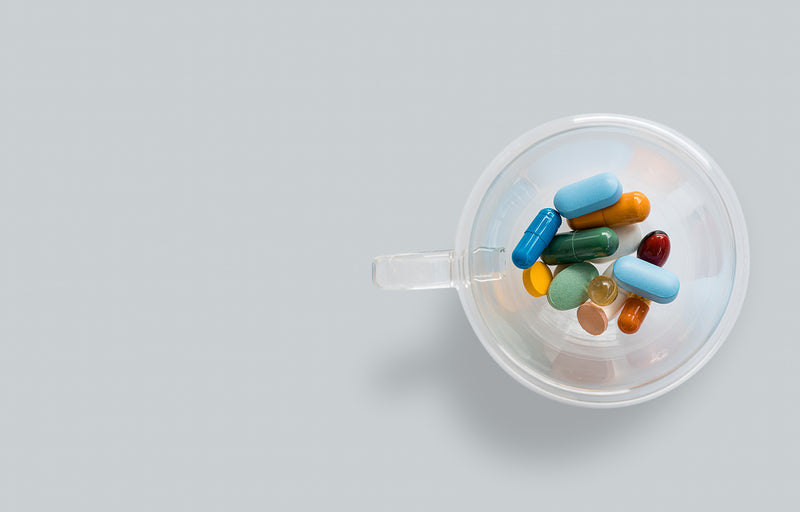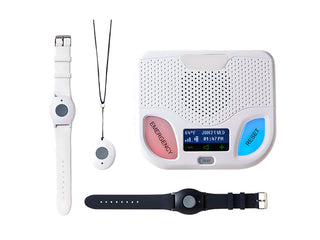Health Updates
In a COVID Winter, Can Vitamins Help Seniors Stay Healthy?

As the global community tips deeper into a winter season framed not just by the always-present cold and flu, but the novel coronavirus which causes COVID-19 as well, there has been a flurry of interest in ratcheting up immune system strength. In fact, a quick Google search of the phrase “vitamins to mitigate COVID” yields more than 135 million results – a bit of evidence to support the topic’s popularity.
And according to medical experts and researchers in the field, there is some validity to the addition of a couple different vitamins, in addition to the standard advice around boosting the immune system (which includes eating a balanced diet, getting enough sleep and a regular exercise regimen): vitamin D and zinc.
In December, the National Library of Medicine released a research paper focused on the topic, titled COVID-19 Disease and Vitamin D: A Mini-Review, to examine “a scientific view on the potential role of vitamin D in SARS-CoV-2 virus/COVID-19 disease, based on the fact that Vitamin D is well-known to play a significant role in maintaining the immune health of an individual.”
The findings seem cautiously optimistic: “We suggest that supplementation of subjects at high risk of COVID-19 with vitamin D (1.000 to 3.000 IU) to maintain its optimum serum concentrations may be of significant benefit for both in the prevention and treatment of the COVID-19.”
A few other recent studies suggest a direct connection between certain supplements and SARS-CoV-2. One observational report published in the Journal of Endocrinological Investigation found an association between vitamin D deficiencies and higher mortality risks from COVID-19 among patients in Italy. Another one from the JAMA Open Network found vitamin D deficiency was associated with increased COVID-19 risk.
And while there is a well-documented link between what we consume and our immunity, scientists still don't have a definitive answer on whether certain vitamins and minerals can mitigate a COVID-19 infection or make one less severe.
That said, according to Walter Willett, M.D., professor of epidemiology and nutrition at the Harvard T.H. Chan School of Public Health, taking vitamins to boost immune health right now is just good common sense: "The bottom line here is that I don't think anybody should be walking around with low levels or low intakes of important and essential micronutrients and minerals and vitamins at any time, but especially if they're potentially going to be infected with coronavirus,” Willett says. “It's just basically practicing good preventive nutrition to begin with.”
So which supplements should older adults focus on? The two with the most weight behind them from a research standpoint are: vitamin D and zinc.
- Vitamin D: Supporting research shows that data from countries where vitamin D deficiency is common have higher rates of COVID-19 infection and more serious health consequences from the illness, including death. According to the National Institutes of Health (NIH), most people meet at least some of their vitamin D needs through exposure to sunlight (the recommended daily amount of vitamin D is at least 600 international units (IUs) a day for people ages 19 to 70). If daily access to sunlight isn’t possible (due to stay-at-home orders, for example), supplements of Vitamin D can help.
- Zinc: Another nutrient that plays an important role in immune function with regard to the production of white blood cells is Zinc, which helps to fight off infections. In addition, it plays an important role in inflammation suppression. Why? Inflammation has been a common complication among patients with more severe COVID-19 cases. And prior research has found that zinc can prevent the virus that causes the common cold from replicating; it can also decrease inflammation in the upper respiratory tract. The NIH recommends 11 milligrams of zinc per day for men and 8 mg for women.
Ready to jump on the supplement wagon? A good first step is to talk to your doctor or pharmacist. They can help assess if you might have a natural deficiency and then work with you to put a plan in place to address it, which may include a change to your diet or exercise regimen. They can also make a recommendation around which supplements you might want to consider.
And even if you’re immune health is up to snuff, an inexpensive multivitamin-multimineral can act as “a nutritional safety net,” according to Dr. Willett. “A lot of people who make a good attempt to have a healthy diet can have some gaps,” he adds.
In addition to Vitamin D, Zinc and a multivitamin, a few other vitamins are frequently recommended for older adults:
- B Vitamins: As we age, our bodies become less efficient at absorbing B vitamins such as vitamin B12 and vitamin B6, which are needed for healthy nerve function, heart health, and blood pressure. Experts typically recommend getting around 2.4 micrograms of B vitamins each day.
- Vitamin C: This vitamin plays a key role in immune system health, metabolism and – according to the American Optometric Association – may help prevent cataracts and decrease vision loss associated with age-related macular degeneration. Health professionals recommend getting 75 to 90 milligrams of vitamin C every day.
- Calcium: A key component of healthy aging, calcium deficiencies can lead to brittle bones or bone diseases like osteoporosis. The AARP recommends taking calcium supplements for individuals 50 years old and up: Men should get around 1,000 milligrams of calcium per day while women should take 1,200 milligrams per day.
- Omega 3/Omega-6: These fatty acids play a role in healthy vision and smooth joint function. There are three main types of omega fatty acids, including DHA, EPA, and ALA. Research shows omega fatty acids may help to reduce pain and other symptoms of rheumatoid arthritis. Studies suggest omega fatty acids may also help to decrease the progression of macular degeneration, a condition that affects the eyesight of many older individuals.
Quality Check: Make sure you do your homework before purchasing supplements.
And lastly, a couple tips from the experts to help seniors find the best supplements:
- Third-party verifications: You should look for dietary supplements that are USP-verified, which indicates the supplement contains the ingredients listed on the label in the stated amounts.
- Formulated for seniors: These supplements are usually fortified with the vitamins and minerals that older adults need and may have difficulty getting from a normal diet.
- Consider signing up for a supplement subscription service so you can order online, and then get all the vitamins and minerals you need delivered right to your door – no trip to the pharmacy required.
- Options to traditional pills: If you have a hard time swallowing pills, you can look for liquid vitamins, nutritional supplement drinks, or gummy vitamins, which are easier to take.
- Make sure you don’t take more than the recommended daily amount: If you’re not sure how much you should take, ask your doctor or use an online resource such as the dietary guidelines from the Office of Disease Prevention and Health Promotion or the USDA.
- Try to get more vitamins and minerals from your diet: Foods are the best way to get nutrients and minerals, but if you can’t eat certain foods or a medical condition causes a deficiency, it may be a good idea to take supplements.







